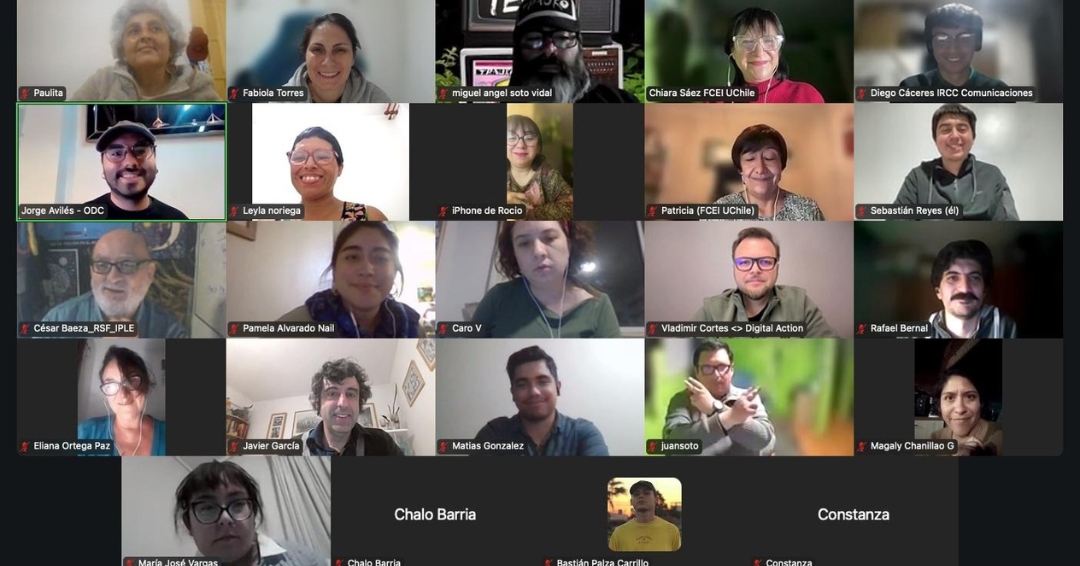Once again, November will be an intense month in Chile for discussions about governance, public policy, and the challenges posed by the Internet and digital platforms.
This is because the Santiago agenda features the 17th Latin American and Caribbean Internet Governance Forum (LACIGF) and the Youth Internet Governance Forum of Latin America. Additionally, prior to this, a group of multisectoral organizations will convene the 2nd Chile Internet Governance Forum (Chile IGF). The dates are still to be determined.
The Internet governance refers to the processes and standards that affect how the Internet is managed, considering that because of its decentralized nature there is no single central authority in charge of its management.
Thus, the Internet is administered in a decentralized and collaborative manner, which ensures that issues can be resolved at the level closest to their origin, according to the Internet Society.
UNESCO highlights the development and application of supplementary agreements by governments, the private sector, the civil society and the technical community, in their respective roles, to promote principles, standards, rules, shared decision-making procedures and activities that shape the evolution and use of the Internet.
This governance concept emerged as part of the agreements reached over 20 years ago at the World Summit on the Information Society (2003-2007) convened by the United Nations to provide various actors and sectors with a space for dialogue about the development of the Internet and its interaction with other public policy areas: human rights, social inclusion and digital connectivity, education and development of competencies among people, participation and democracy, gender equality and diversity, etc.
In its 16 versions, LACIGF brings together organizations and civil society members working on digital rights issues, companies in the sector, representatives of the technical community and the public sector, the academia and others, with the understanding that as network access has become more widespread in the region, complex challenges also emerge, such as the regulation of contents or digital platforms, or the inability to fully close the digital connectivity gap. This is because the Internet is a technology that operates in different layers, from infrastructure to what we see circulating every day, such as information and contents.
This year’s 17th version proposes the following discussion topics: artificial intelligence (AI) and emerging technologies, human rights and freedoms, cybersecurity, environment and sustainability. There is an open invitation to propose panels and workshops (until August 11th), and participation will be possible in hybrid form upon registration (which will be announced on the website and social media @lacigf).
The Chile Internet Governance Forum (in its 2nd version) will also enable the consolidation of a necessary space for dialogue in the country, seeking to address issues and challenges from the perspective of multiple social actors that can bring national issues to light and present innovative practices, as well as regulatory and public policy challenges.
The Technical Committee consists of NIC Chile, Internet Society Chile Chapter, the National Association of Consumers and Users of Chile (CONADECUS), ChileTelco, Fundación País Digital, the Universidad de Chile - Department of Computer Sciences (DCC), the Universidad Diego Portales and the Ministry of Foreign Affairs.
The key issues for the debate are the implementation of the Internet as a public service law, the new institutionalism in cybersecurity, discussions on digital regulatory proposals and the expectation to pass a new personal data law.
The Ministerial Conference on the Information Society in Latin America and the Caribbean (eLAC)will also be held in November, where Chile will assume the presidency of the region’s Digital Agenda.
The Digital Agenda for Latin America and the Caribbean (eLAC)coordinated by the Economic Commission for Latin America and the Caribbean (ECLAC)is defined as a strategy that proposes the use of digital technologies as sustainable development instruments and seeks to promote the advancement of the digital ecosystem in Latin America and the Caribbean through a regional integration and cooperation process, strengthening digital policies that foster knowledge, inclusion and equity, innovation and environmental sustainability.
It emerged in 2000, and the proposed eLAC 2024 Digital Agenda has four strategic pillars: a digital era for all, productive and sustainable digital transformation, digital transformation for wellbeing and new digital partnerships for prosperity, as shown on its website.
This will undoubtedly be an opportunity for us to learn about and participate in debates at a regional level based on our national context, as well as facilitate a diversity of perspectives and interests that also include the civil society in the discussions.
By Patricia Peña, July 2024


